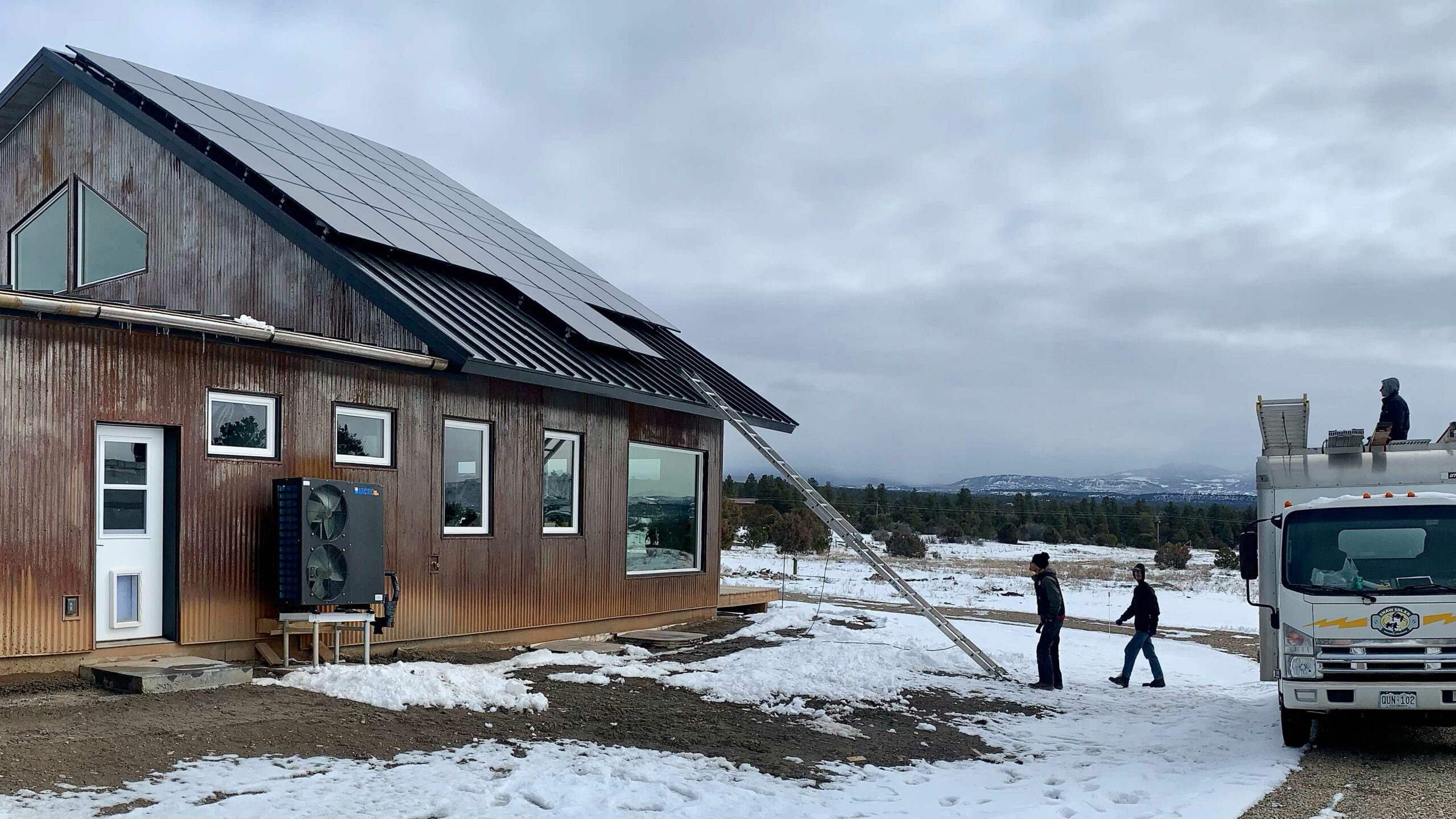The solar install was completed today, for the most part. The install is done and working. Now we have to wait on the State of Colorado electrical inspector and then our power utility inspector. That should take less than 2 weeks and then we will be putting juice back onto the grid and eliminating our homes power bill.
The main issue preventing solar power adoption is the large up front cost. The payoff for our system is estimated to be ten years. Thats with no increase in utility rates. When we added solar to our home in Phoenix it paid for itself in five years. Solar works and everyone who owns their home should seriously consider getting it.
Currently there are a lot of tax rebates available but those are in the process of being phased out. The US Federal tax credit for renewable energy purchases is currently set to 26% for 2022. It drops to 23% in 2023 and expires in 2024 unless congress extends it, again. When we did our home in Phoenix it was a 30% credit and people still complained it wasn’t enough.
Your state and utility company may also have additional credits available. You should do some research and even call the utility company to learn more. This is also a good idea to check on if you are buying any energy efficient equipment. The incentives are there to make this improvements, you just need to find out about them.
Once you determine that getting solar on your home makes sense you should start looking for companies that specialize in solar installation. You want to be wary of any company that pushes leasing the system though. Leasing a solar system on your home is a terrible idea.
When you lease solar you are putting equipment on your roof that you do not own. You avoid the large upfront cost and just have a monthly payment to make. You save some money on your electric bill and sleep knowing you are helping to reduce the use of fossil fuels. The problem comes if you need to sell your home.
Ideally the buyer accepts your lease for the solar equipment and everyone is happy. Unfortunately ideally does not happen the majority of the time and you have to pay to remove the system. You also have to pay an early termination fee for breaking the lease. In the end if you don’t have the ability to pay for the system up front you should reconsider getting it until you can pay for it.
Past the leasing debacle you want to make sure that the company you hire has its own master electrician on staff. A lot of installers hire a master electrician as a subcontractor for the installations. The majority of the install is putting the racking and panels on the roof. The electrician doesn’t have a lot to do but they do have the most important part of the job. If the company has one on staff they are less likely to have delays. Also if and or when there is an issue the company will be faster to send the electrician back out.
When you talk with the companies to get quotes they should absolutely come out to see your property. They should check for trees or other shade creating objects that will cause issues with solar production. They should check for access to your electrical panel and also that it is big enough for them to add more circuits. For our home in Phoenix we needed to get a larger panel.
They should ask to take a look at your prior 12 months of electrical usage. If you don’t have 12 months, like us, then they should ask for a list of all electrical devices in the home. They should also get details about insulation values. Then they can create a simulation of annual usage.
From the annual usage they will be able to determine the size of your system. When I did some math on this last year before the build even began I came up with us needing a 16kW system. That included us having an Electric Vehicle and charging it at home. We do not have an EV yet so the installers estimate of a 12kW system makes sense, we hope.
Understanding the technical aspects of your solar system can be helpful. It’s a good idea to have a general understanding of how the system works and how it will be installed. The installation company should take time to go over these details with you in their quote. You should also expect them to handle coordinating with your utility company and they should have a good relationship with the utility company.
The quote should be clear and easy to understand. They should have the total price at the top. That is the number you are going to need to pay over the course of the install. There will be an upfront deposit, then another payment once the install is done, and a final payment once the utility signs off and lets you create juice. Don’t count on the rebates coming in during the project. Be able to pay and keep feeding your family otherwise wait till you can.
The quote should list out the details of the equipment they are selling you and all the steps they are handling, like talking with the utility company. It should also show you the payment details and finally the installation process. Get a few quotes.
The coolest thing about having solar on your home is that the home will always be able to pay its electric bill. Once you install the system the warranties are over 20 years for pretty much all of the equipment and since there are no moving parts they just work. Just do it.

Leave a Reply